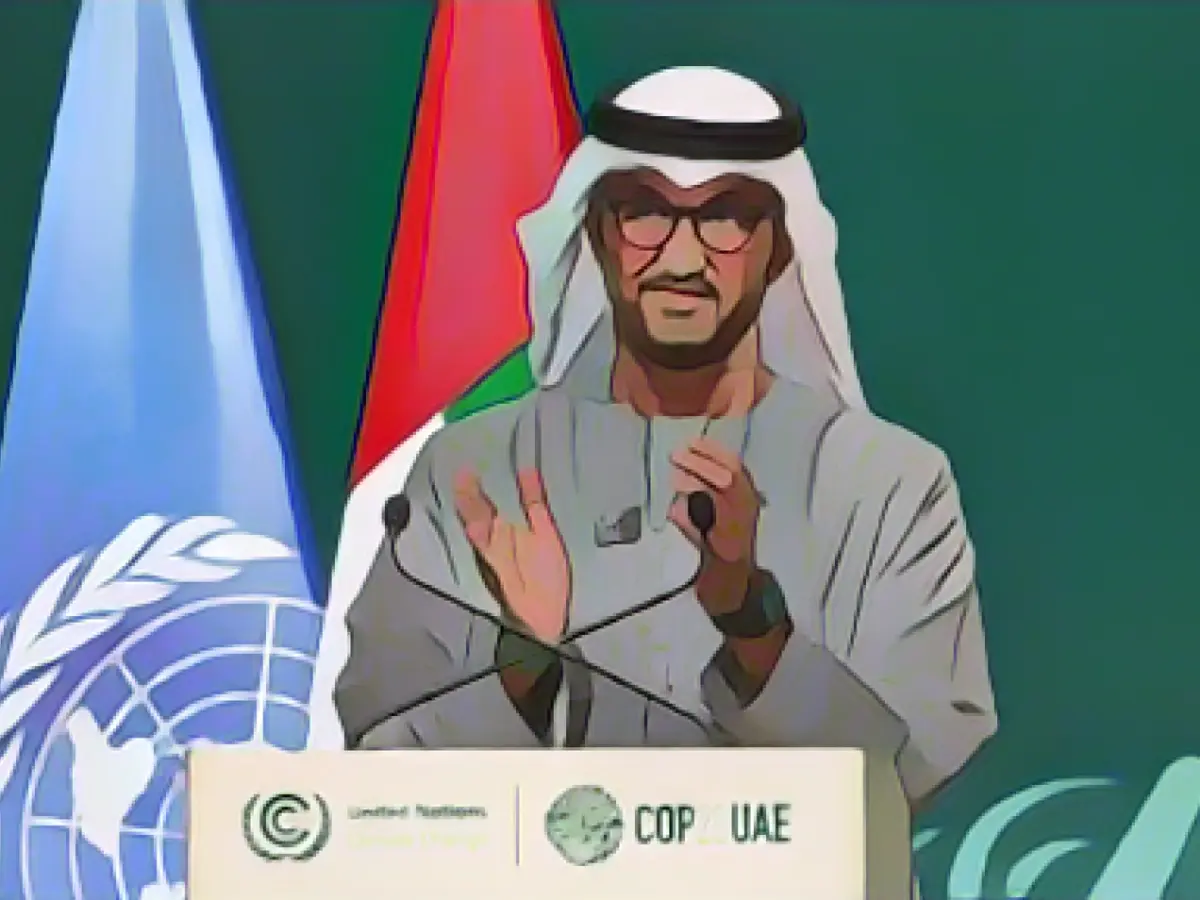World Climate Conference in Dubai heralds global shift away from fossil fuels
Conference President Sultan Ahmed al-Jaber announced the joint resolution in the conference plenary to the applause of the delegates - the first resolution of a UN climate conference that concerns the future of all fossil fuels, including oil and gas in addition to coal.
Countries such as those of the EU were thus unable to push through their demand to anchor a global phase-out of all fossil fuels with the word "phase-out" in the face of fierce resistance from oil states such as Saudi Arabia.
"We have the basis for transformative change," said al-Jaber, after none of the almost 200 countries raised objections to the central text of the resolution. The plenary session took place one day late. After a second night of negotiations, the COP President presented the revised central resolution text on Wednesday morning.
The German government nevertheless welcomed the compromise. The agreement shows "that we are walking the path of climate justice together", said Federal Foreign Minister Annalena Baerbock (Greens) in plenary. Economics Minister Robert Habeck (Greens) also declared: "The path to a climate-just future has finally been paved."
Environment Minister Steffi Lemke (Greens) spoke of a "good compromise on which we will build". Development Minister Svenja Schulze (SPD) said that the conference sent out a "signal of unity" that "the world urgently needed in these difficult times".
EU Commission President Ursula von der Leyen also saw the decision as the "beginning of the post-fossil age". US climate envoy John Kerry told the conference plenary that in times of war in Ukraine and the Gaza Strip, "multilateralism" had set a course for the "common good".
The island states, which are particularly threatened by climate change, reacted with concern. Samoa's chief negotiator Anne Rasmussen said on behalf of the small islands that "incremental progress" had been achieved, but that an "exponential step towards change" was needed. John Silk, the negotiator for the Marshall Islands, even compared the agreement to a "canoe with a weak and leaky hull, full of holes". Nevertheless, it had to be put into the water "because we have no other option".
Saudi Arabia, on the other hand, expressed "gratitude" for the compromise on behalf of the Arab group. Brazil and China stated that the industrialized countries must now lead the way in the energy transition.
The conference resolution calls for a tripling of global renewable energy capacity by 2030 and a doubling of energy efficiency in the same period. However, it also contains references to "transitional energies" such as natural gas and the controversial technologies for capturing and storing CO2, which environmental organizations criticize as a back door to delaying the energy transition.
UN Climate Change Secretary Simon Stiell called on the global community to implement the Dubai resolution now. "The age of fossil fuels must end", UN Secretary-General António Guterres also warned.
Environmental and development organizations combined praise with calls for more stringent measures. The agreement in Dubai "marks the beginning of the end of the oil, gas and coal industry after 30 years of climate activism - no more, but also no less", explained Greenpeace board member Martin Kaiser. However, it "could and should have been more binding and without loopholes".
The call for a shift away from coal, oil and gas could be "a historic step - but only if there is actually a massive global phase-out of coal, oil and gas over the next few years", emphasized Christoph Bals from Germanwatch.
"We are finally naming the elephant in the room," explained Mohamed Adow from the think tank Power Shift Africa, referring to the fossil fuels that have not yet been explicitly named in COP resolutions. "This genie is never going back in the bottle."
In turn, the climate protection movement Fridays for Future Germany was disappointed. "We are concerned that we orient ourselves to the realities. That would mean getting out of fossil fuels," spokeswoman Clara Duvigneau told SWR.
Read also:
- This will change in December
- German activists speak out in Dubai on suffering in Israel and the Gaza Strip
- Despite UN vote: fighting between Israel and Hamas in the Gaza Strip continues
- Nuclear fusion - hype or solution to energy problems?
- The Federal Government of Germany, represented by Annalena Baerbock and Robert Habeck, supported the compromise at the UN climate conference.
- Steffi Lemke, the German Environment Minister, viewed the agreement as a good starting point for further action.
- The joint resolution, announced by Sultan Ahmed al-Jaber, aims to triple global renewable energy capacity by 2030.
- However, the resolution also includes references to "transitional energies" like natural gas and controversial CO2 capture technologies.
- Environmental organizations like Greenpeace and Germanwatch criticized the resolution for lacking bindingness and having loopholes.
- Saudi Arabia, a part of the oil states, expressed gratitude for the compromise, but urged industrialized countries to lead the energy transition.
- The United Nations Secretary-General, António Guterres, called on the global community to implement the Dubai resolution immediately, marking the end of the fossil fuel age.
- Developing countries and small island states, like Samoa and the Marshall Islands, expressed concern about incremental progress and the need for a faster shift towards renewable energy.
- The EU's top officials, including Ursula von der Leyen and John Kerry, praised the resolution as a step towards the post-fossil age.
- At the UN climate conference in Dubai, the climate protection movement Fridays for Future Germany expressed disappointment, calling for a faster phase-out of fossil fuels.
- The agreement in Dubai has been hailed as a historic step by Mohamed Adow of the think tank Power Shift Africa, who noted that fossil fuels are now being explicitly named.
- Worldwide, countries and organizations are preparing for the future energy landscape future, turning away from reliance on fossil fuels and towards more sustainable sources of energy.
Source: www.stern.de







